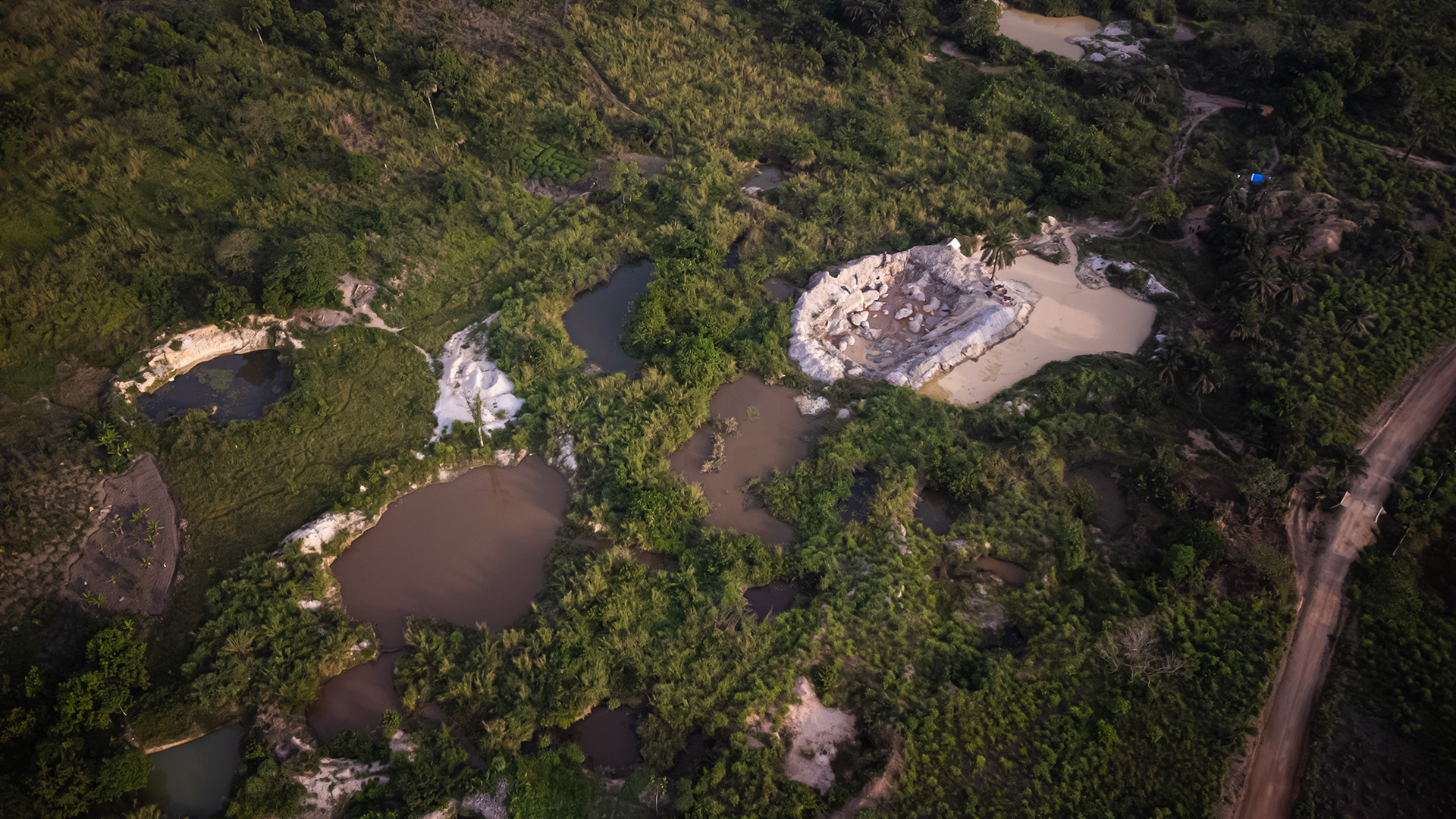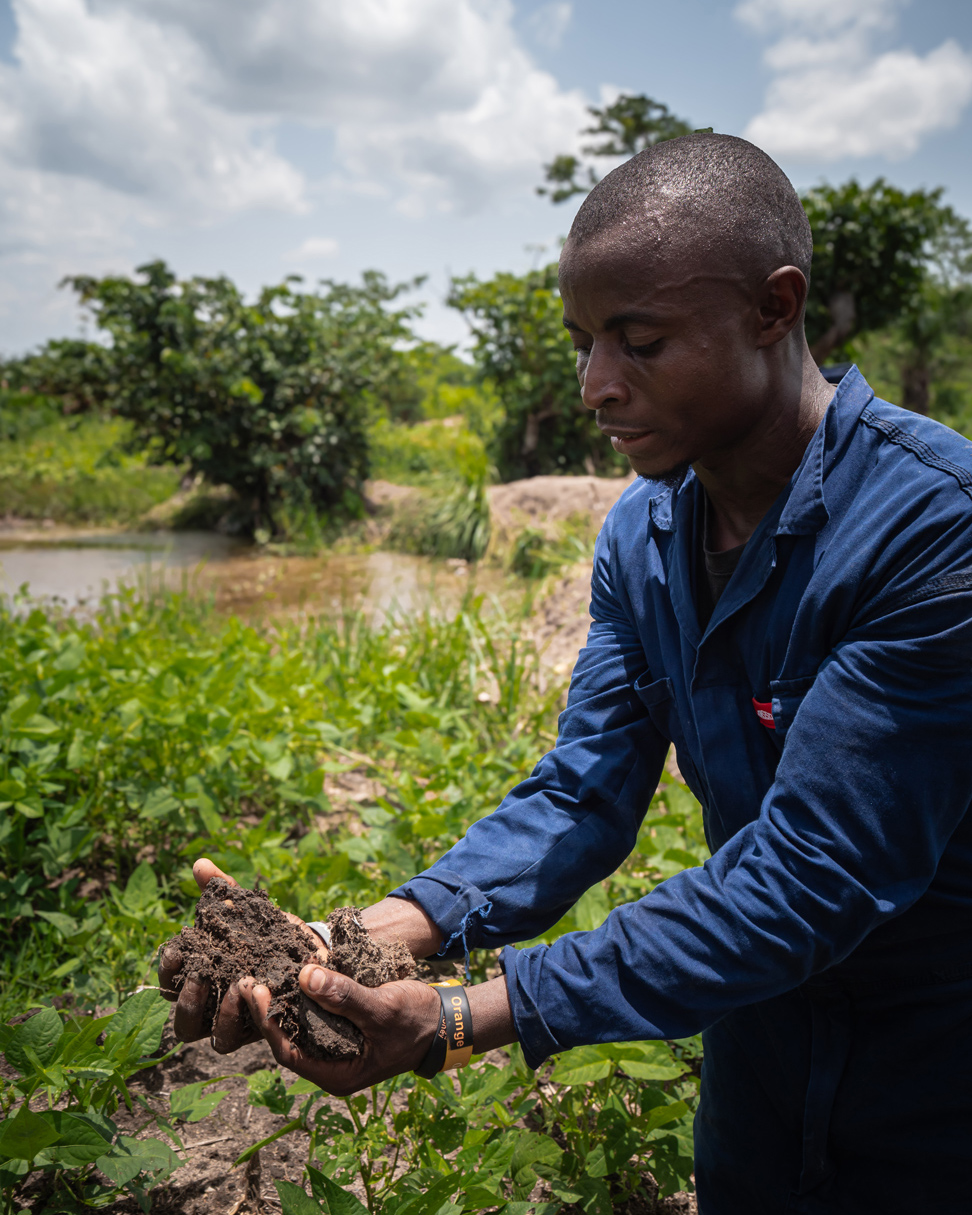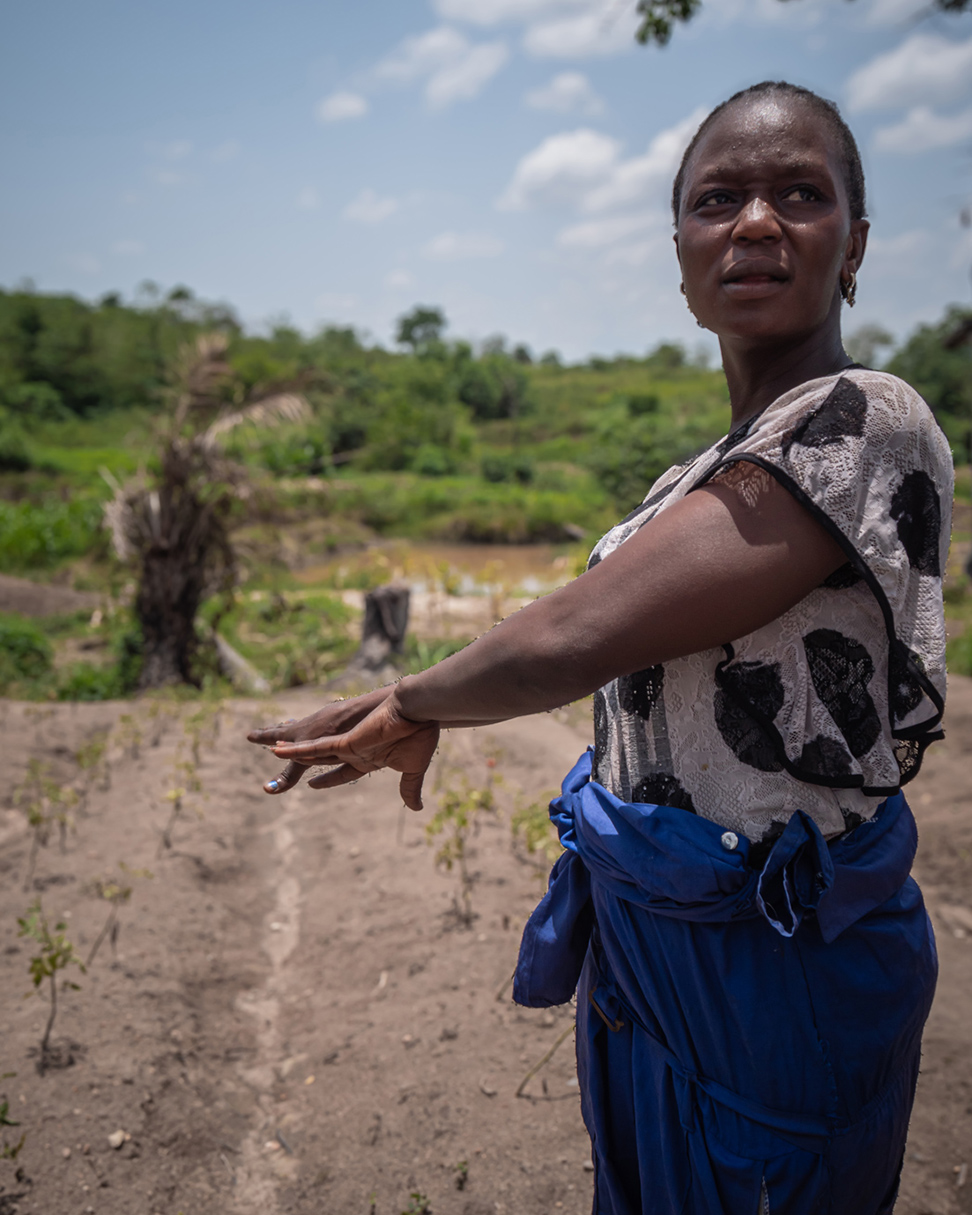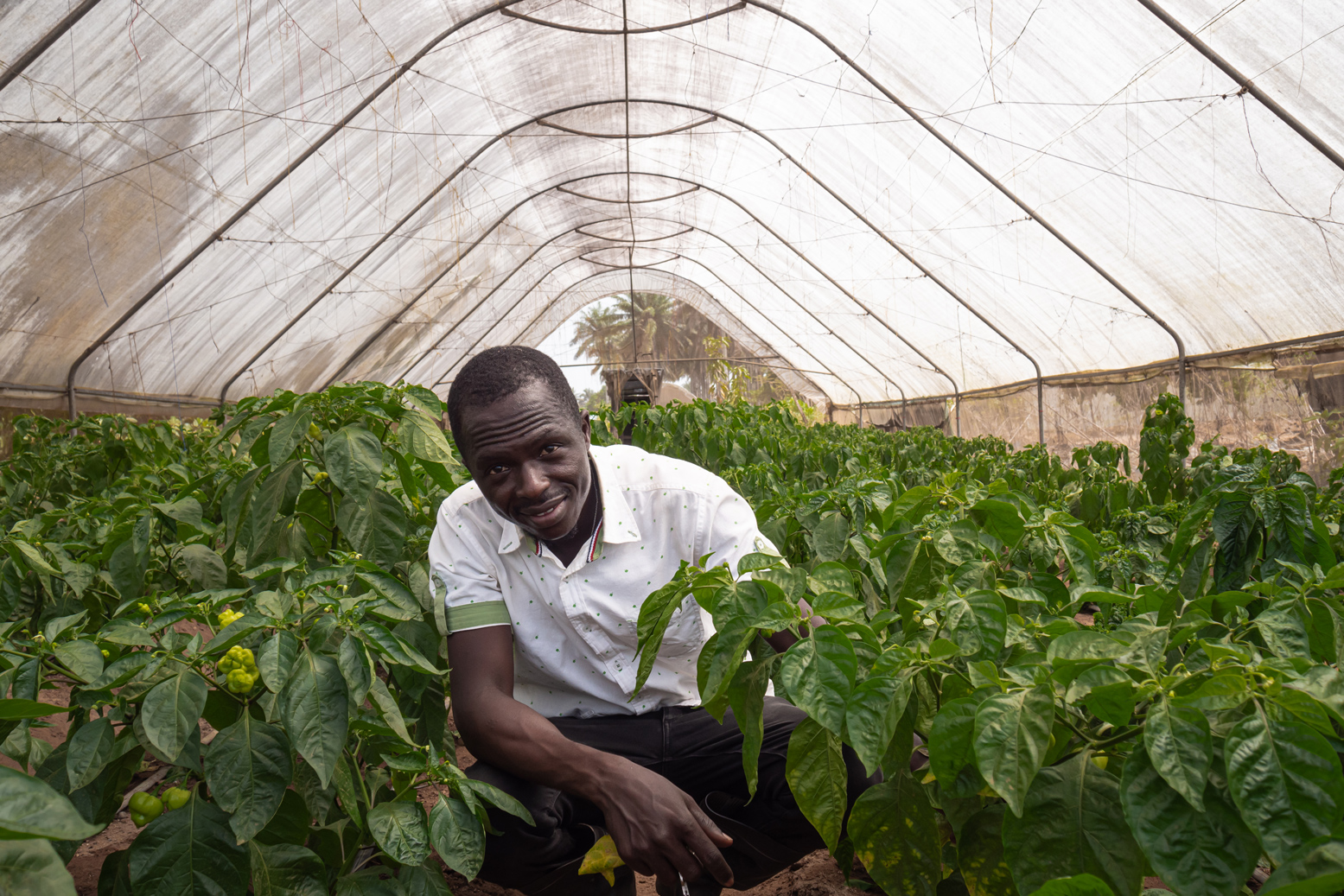
No longer a mining field
Rehabilitating lands scarred by diamond mining to offer new livelihoods in Sierra Leone
The FAO Green Jobs for Rural Youth Employment project is changing the landscape and people’s mindsets in areas previously ravaged by diamond mining. ©FAO/Daniele Epifanio
17/04/2024
In the district of Kono, in eastern Sierra Leone, the yellow soils lie barren and exposed, gouged out by the relentless quest for diamonds. In large swathes of this region, the earth is scarred and depleted by loss of topsoil, erosion and contamination. Many local communities have been battered by a history of conflicts over the gems, escalating into civil war in the 1990s.
Decades on from that trauma, there is a change in the landscape and in people’s mindsets too. “There is life beyond mining,” says Success Stanley Lavallie, a 27-year-old farmer and young farmers’ representative.
Despite his auspicious name, he has not had an easy career path. Apart from mining, he has worked various informal jobs, such as selling sim cards on the street, before joining the Green Jobs for Rural Youth Employment project of the Food and Agriculture Organization of the United Nations (FAO). Aimed at promoting green employment in agriculture for rural youths, the initiative is providing young people in Kono with the chance to contribute to land reclamation in mined-out areas.
This involves bringing in new fertile soil and organic matter. Using green cover, mulch and natural pest control techniques, the lands are rehabilitated for farming, in particular for organic horticulture and beekeeping. These efforts, coupled with training in farming skills, are helping to generate employment opportunities for the project participants, addressing youth unemployment and rural poverty.


Young men and women, like Stanley (left/top) and Betty (right/bottom), are discovering new livelihoods transforming once barren land into fertile vegetable plots. ©FAO/Daniele Epifanio
In Sierra Leone, young people struggle to access viable employment opportunities. Nearly a third of them are not employed, in school or in training.
More than 200 youths have joined the project nationally. Of the 15 participants in the Kono district, most were previously engaged in commercial or artisanal mining.
Agriculture is now offering new possibilities. Stanley states, “We all grew up with the mentality that diamonds are the only solution, but being involved in agriculture has created an impact on me, in my society and even in my community as a whole.”
The project is also contributing to climate resilience by restoring the soil’s capacity to store carbon and promoting irrigation technology to make the crops less vulnerable to drought.
Abdulai Bangura, FAO’s National Project Coordinator in Sierra Leone, walks amidst the landscape which still bears the marks of extensive mining and points to a greenhouse constructed as part of the project. “This will support us to do all year-round production. We are also now preparing our seed beds for production as the rainy season will start in a couple of weeks,” he explains.
The young people involved in the project, working together with a team from the Ministry of Agriculture and Food Security and other partners, have been able to convert a piece of seriously depleted land into valuable agricultural terrain, which is now yielding produce such as tomatoes, cucumbers and watermelons. Thanks to the improved fertility of the soil, they are also growing local staples such as maize, groundnuts and cassava.
This transformation of the land is a thoroughly hands-on process. “We don't only learn it, but we also implement it. Now I've learnt I can plant a seed; I can nurture the seed. I can apply organic fertilizers to the seed because we do not apply chemicals,” says Stanley.
“Agriculture has impacted something in me that what I was doing previously never did.”

A greenhouse erected as part of the FAO project supports year-round fruit and vegetable production. The young farmers also grow local staples such as maize, groundnuts and cassava. ©FAO/Daniele Epifanio
As an alternative to mining, beekeeping and honey production provide a “massive opportunity for the youth, in terms of the local markets and the export market also,” with both the young people and their families seeing a significant improvement in their livelihoods, says Abdul Munu, President of Mabunduka, a community-based farmers’ association involved in the project.
For the women working in the project —some of whom were also miners— the new employment opportunities have also brought great changes to their lives, says another representative of the young farmers, Betty Serai Sam. Before joining the project, she held various occupations from mining to being a primary school teacher.
With the income she earns through agriculture, Betty feels that she is able to support her family in moments of need. She explains, “… Now I can earn a little here to distribute it to my family, do my own house affairs. I'm an empowered woman.”
Boosting livelihoods and empowering youth are key goals of the project. With support from this initiative, Stanley believes that in the next five years, he will serve as an “agricultural ambassador”, implementing the lessons he has learned from the project and encouraging more young people to come on board and join the agricultural venture.
With proponents like Stanley and Betty, the FAO project has demonstrated that virtually no land is too far gone to give up on. All that is needed is knowledge, tools and the aspirations of young people who shape its future.
Related links
Learn more

